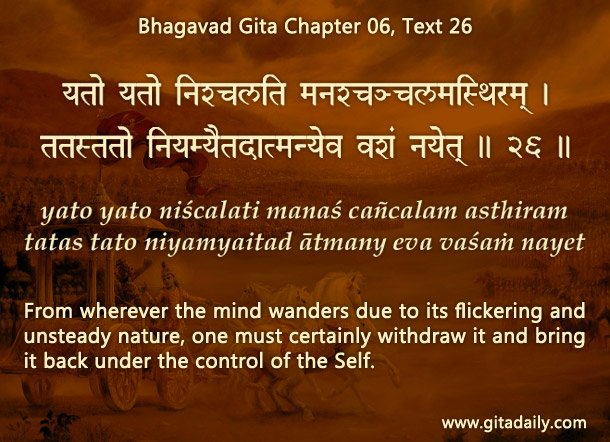Suppose an inattentive person on a huge, noisy, crowded railway station boards a wrong train. Some trains may stop after a few minutes, but some, only after several hours. In the latter case, the traveler will find getting back on track time-consuming and troublesome.
Our mind is like a congested railway station filled with the cacophony of various stimuli coming from our senses and our memories. If we don’t carefully check the stimulus that we dwell on, it may trigger within us a train of thoughts that is wrong – that takes us in undesirable directions. For example, the stimulus of someone looking at us with a raised chin may remind us of a past snub. That person’s opinion of us may not matter much for us. Still, if we let that behavior propel within us the anger thought-train, revenge fantasies may carry us away. Only later when we find ourselves with clenched fists, biting lips and palpitating hearts, we may realize that we are dissipating our time and emotional energy. Some thought trains can carry us so far away that we may end up dissipating our physical energy too – we may speak or do things that aggravate the situation.
To keep small things small, we need to check a thought-train before we check into it. When we check into a hotel, we presume that we will be staying there for some time. Similarly, when we check into a thought train, we presume it to be a desirable place where we can reside for some time. But it may not be. That’s why we need an alert intelligence to discern whether a particular thought-train is desirable or not. Pertinently, the Bhagavad-gita (06.26) urges us to attentively observe where the mind is going and, whenever it wanders, diligently bring it back on track.
Explanation of article:
https://www.youtube.com/watch?v=I9IB2PQ4eNQ
Podcast:


Go greatly explained.
Thank you so much for clarifying and explaining most important
thought process of life.
Appreciate your daily input of Gita.
Hare Krishna.